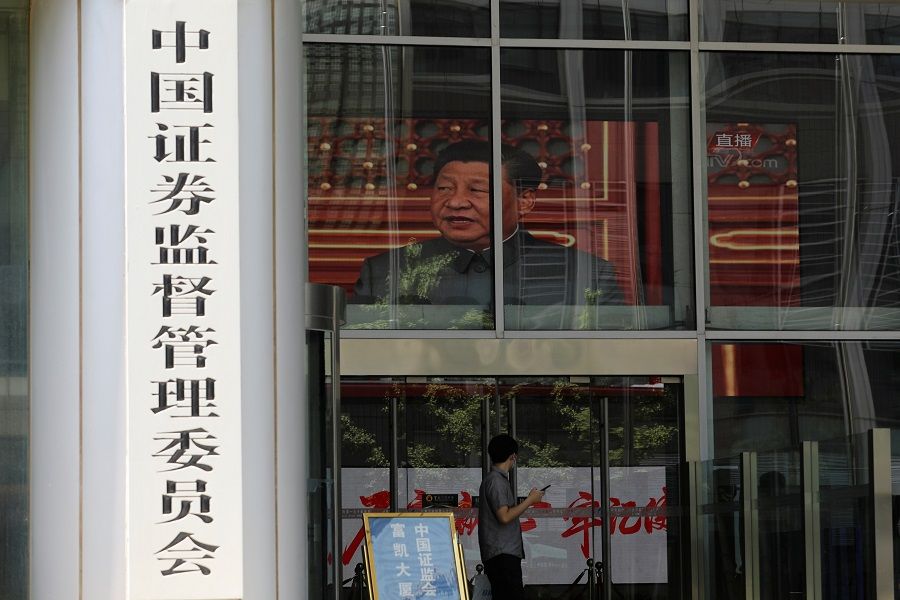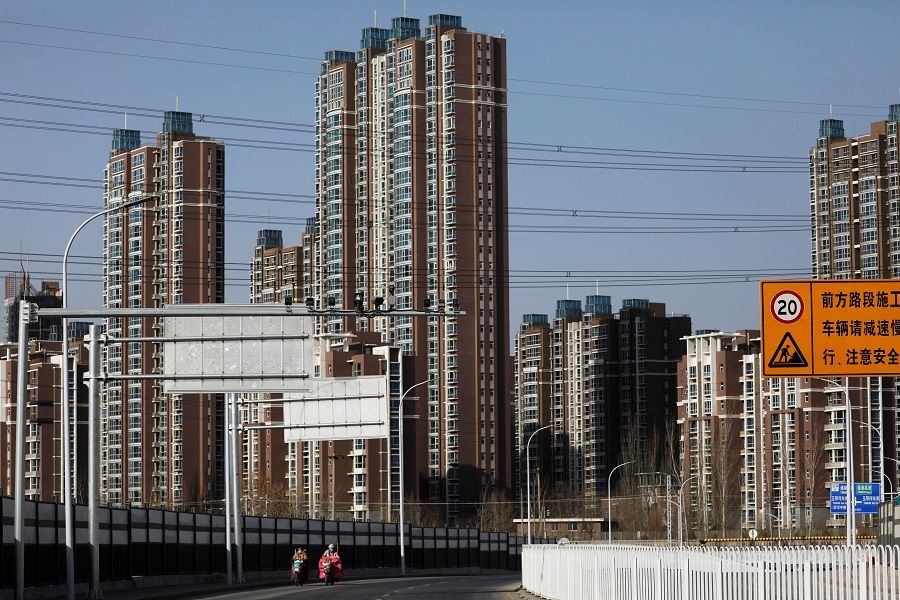'Winner takes all' no more: China is ready to build the socialist regulatory state

The Chinese government's recent moves against private corporations and the capital market caused panic among investors, both foreign and domestic, and invited speculation on China's policy direction and the Communist Party's long-term intentions. The government's moves, targeted at the most capitalistic elements in the Chinese economy, have been criticised on the basis of "market fundamentals". People believe government policy is the source of uncertainty that undermines confidence in the market.
Viewing the Chinese economy through a capitalist lens inevitably misses the big picture. Capital reigns supreme in a capitalist economy, but not in China's long cultural traditions.
A long history of 'curbing capital'
In the imperial era, it has always been in the Confucian tradition to subordinate commercial interests to that of the agrarian economy; the merchant class was even relegated to the bottom of the traditional social hierarchy.
Late Qing reformers promoted capitalist enterprises as the means (用) to preserve the Chinese "essence" (体). More than a century ago, Sun Yat-sen, father of modern China, talked about "curbing capital" (节制资本) in his blueprint for new China. The communists banished capitalism soon after they took over power and Mao was attentive to nipping spontaneous capitalist tendencies in the bud. Deng took an instrumentalist view of China's experiment on stock exchanges: "We simply shut it down if it does not work out for us."
Xi Jinping returned to this longstanding tradition when he announced "preventing the disorderly expansion of capital" as a policy objective in 2020. Since then we have seen the fiasco of the Ant Group's initial public offering, increased anti-speculation efforts in the housing market, antitrust actions against internet giants, the censoring of Didi on national security grounds, and the cracking down on the after-school tutoring business.
After decades of observing and learning about the advantages and pitfalls of capitalism, especially the dominant Anglo-American variant, the Chinese state is gaining confidence in "governing the market" to advance its socialist objectives.
Harnessing market forces to advance the state's objectives
A socialist regulatory state is taking shape under Xi Jinping. The state is actively carving out a new role for itself along the line of socialism. After decades of observing and learning about the advantages and pitfalls of capitalism, especially the dominant Anglo-American variant, the Chinese state is gaining confidence in "governing the market" to advance its socialist objectives.
A socialist market economy does not conform to the liberal ideal in which the state upholds neutral rules to let the market decide winners and losers. Instead, the state harnesses market forces to advance its own objectives. China Inc. or state capitalism as such is purported to be superior to the capitalist jungle model because it is not single-mindedly focused on capital accumulation. It does not revere the wishes of rich investors; it prioritises the welfare of the nation instead.

What are then the main objectives of a socialist regulatory state? First and foremost, it is to promote "common prosperity" (共同富裕), which is the hallmark of Xi's "new era" of socialism with Chinese characteristics. The 19th Party Congress stated that "the essence of socialism is common prosperity" both in material wealth and spiritual richness and this mantra has been reiterated by Xi Jinping ever since. Xi wants it to be pursued in stages to avoid a return to the egalitarianism of the Mao era.
The second objective is to boost social morale and people's confidence in socialism or the Chinese model - and hence the legitimacy of the communist regime - by promoting "socialist core values".
The third objective emphasised heavily in recent months is to head off potential risks, including financial instability, a housing bubble, supply chain disruption, broadly construed national security such as data security, bottleneck technologies and geopolitical risks. Recently we have seen a curious dislike in both the US and China of the listing of Chinese companies on US stock exchanges.
The fourth objective stems from China's determination to keep the financial sector in the service of the real economy, and to prevent it from becoming the tail wagging the dog as in many capitalist economies. The capital market and corporations are to be harnessed for developing the productive strength of the nation, not given a free hand in speculative adventures that inevitably lead to the domination of the economy by financial capital. Socialism by definition pursues a substantive rationale.
More clampdowns expected in housing, education, healthcare and retirement
Finally, industrial policy is another area of focus. The socialist regulators coordinate industrial actors and collaborate with local and sectoral authorities in targeting strategic industries. For example, the concerted effort to promote the Science and Technology Innovation Board in the securities exchanges, and the collaboration between securities regulatory bureaus in some provinces and local governments to channel financial resources into the rural revitalisation programmes. The Guangdong bureau, for instance, is actively engaged in promoting the listing of the agrarian businesses in the northwest of the province.
As such, the security regulators in China are a far cry from their counterparts in capitalist countries. Profit maximisation for investors is not a top priority for regulatory agencies, who are developing collaborative institutions with local party-state authorities to improve financial service for the real economy.
The "winner-takes-all" phenomenon increasingly characteristic of the economy under the fourth industrial revolution will be curtailed in order to tame rising income inequality. This will affect many sectors, including entertainment, athletics, big corporations, medical service, elite education and so on.

What policies are likely to result from these objectives? We can expect more policies alleviating the "four mountains" on the back of the masses - housing, education, healthcare, and retirement. Anti-housing speculation has been a longstanding policy but its enforcement has been significantly intensified recently. The crackdown on the tutoring business fits the bill of more equity in education. Many more policies are expected in improving healthcare and ageing services. Small investor protection and crackdown on financial fraud can also be expected, as well as the oversight of internet companies and antitrust measures.
More crackdowns on capitalist excesses and predatory practices can also be expected. The "winner-takes-all" phenomenon increasingly characteristic of the economy under the fourth industrial revolution will be curtailed in order to tame rising income inequality. This will affect many sectors, including entertainment, athletics, big corporations, medical service, elite education and so on.
The reform of top executives' pay in the state-owned sector has already been implemented and their remuneration has been moderated considerably. There has been an ongoing crackdown on the excesses of the entertainment stars, in terms of excessive pay (via tax evasion through the so-called ying-yang contract for example), extravagant lifestyle, as well as personal scandals.
This is a path-blazing course for the Chinese Communist Party and a central plank of the China model, in which neither the market nor the capitalists are supreme.
"Casino capitalism" that undermines the social morale and socialist core values is frowned upon. The quintessential Wall Street phenomenon of top executives raking in record bonuses, even as a financial crisis is raging and trading companies are losing massive amounts of money, is not going to be allowed in China. Maintaining a sense of justice and fairness among the populace is an important part of regime legitimation.
This is a path-blazing course for the Chinese Communist Party and a central plank of the China model, in which neither the market nor the capitalists are supreme. A good capitalist in China must understand his or her role in the big picture and act accordingly. They must not view the Chinese political economy solely through the lens of liberalism and neoclassical economics. Keeping these socialist objectives in mind one would see policy consistency. On the other hand, the Chinese state is still learning the delicate dance to balance its policy goals with the objectives of investors. Mishaps are also on the menu.
